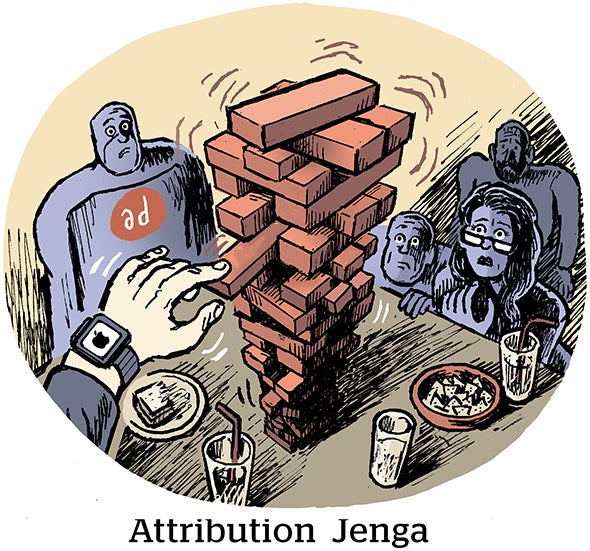Insurance marketers turn to the Web to explain – and sell – their products TIRED OF SHOPPING from broker to broker to get a decent price on insurance? Fed up with being hassled by aggressive insurance salesmen? Are you furious when you can’t get a decent quote or understand what they’re saying even after all that?
You can do what the insurance companies themselves are doing – go online.
According to Forrester Research, 60% of all insurance companies will give insurance policy quotes on their Web sites by the end of this year. And many firms will sell insurance as well – online sales are projected to grow to $4.1 billion in 2003.
Web sites that provide many different types of insurance under one cyber-roof are expected to become more popular.
Auto insurance is already being sold online. Other policies are more complicated and need human intervention. Firms that sell these products use the Web for lead generation.
One of the first companies to go online was Quotesmith.com, based in Darien IL. The firm offers worker’s compensation, and several forms of insurance, including automobile, term life, and medical. It has always promoted itself through direct mail, telemarketing and direct response space ads.
The Quotesmith.com site captures leads that are later followed up by underwriters and agents for the insurance carriers featured on the site; auto insurance is sold outright. Quotesmith gets a commission ranging between 15% to 75% of the premiums for every policy it sells. The exact amount depends on the type of insurance.
The only exception is automobile insurance. For that, “you can download the form and then point, click and bind right on the site,” says CEO Bob Bland.
Will Hemsworth, vice president-marketing for Quotesmith.com, adds that
“The Web can process things a lot faster than agents.”
The firm, which has been growing at 30% per quarter, expects to generate revenue of $18 million this year, compared with $8.5 million in 1999. For the quarter ended June 30, the company posted record revenue of $4.9 million and narrowed its net loss to $3.6 million from $9.1 million during the first quarter.
Despite being an online marketer, Quotesmith.com has so far shied away from banner advertising and Web portal arrangements. “We try to keep our customer acquisition cost around $158 per customer and you can’t really do that online,” says Bland. However, he might try them later this year after an expected shakeout in online companies brings prices down.
The company has been able to capture about 100,000 customers, and assist in the selling of more than 12,000 policies, mostly to college-educated men with annual incomes of $75,000 or more who tends to be married homeowners with children.
Bland expects online insurance sales, now pegged at about 1% of total U.S. sales of $1 trillion per year, to grow to 50% of sales within 10 years
Marketing insurance online is now attracting some of the bigger names in financial services. Last March for example, Fidelity Investments launched Insurance.com, www.insurance.com, a site that markets automobile, term, life and health insurance. At press time, the company was still in the process of securing licenses to sell insurance in all 50 states, according to president Louis Geremia. (Insurance is regulated on the state level). Insurance.com has arrangements with a number of different companies in all the areas it offers.
With Insurance.com, consumers punch into specific locations on site and get re-contacted by e-mail or phone from an insurance carrier or agent, says Geremia.
As with Quotesmith.com, this company make its money through he varying commissions offered for different types of insurance. For automotive insurance, Geremia says Insurance.com takes about half the 15% agents generally charge, “because we don’t do all the paperwork insurance agents do.”
Right now, Insurance.com is attracting about 75,000 visitors a month.
To get more, it’s is relying heavily on established direct marketing to promote the site.
In June, it launched a direct response space advertising campaign to introduce its online insurance marketplace in The Wall Street Journal, USA Today, Time and Business Week. It also ran DR television spots on and on CNNfn and CBS MarketWatch and some other networks.
Insurance.com is also contemplating a large consumer direct mail effort that will be sent out to Fidelity’s more than 15-million-person house list, four million of whom are definitely already online, says Geremia.
Those ads herald the idea that consumers using the site can get old of the resources they need to organize a personalized and self-directed insurance plan and alter them as ” life events” like births and marriages change their needs.
In July, the company also sent out about 30,000 mailing pieces to accountants, financial planners and other insurance “purchase influencers,” says Geremia. Results hadn’t yet been tabulated at deadline.
For retention efforts, Insurance.com has an opt-in e-mail newsletter and is keeping broad demographic information on its users for use in later standard direct marketing efforts, notes Geremia. Most personal information goes back to the insurance companies.
>From all these endeavors, Geremia looks for Insurance.com to bite >off a 40% slice of the online insurance market, which he expects to >double each year for the next four from the $1 billion aggregate he >says it was pegged at last year. He also thinks more types of >policies – say home insurance – will be directly purchasable off the >Web in a year or two, though he does concede such products as health >insurance, by nature, need personal follow-up visits.
Selling online is attracting more insurance companies themselves. For example, when Quickeninsurance, Alexandria, VA got its start in October 1996, it captured leads for only two firms, Zurich and Allstate’s Lincoln Life, says product management vice president Velvet Beard. “They were just looking for a new way to market,” she says. Now the firm handles quotes for more than 27 carriers overall with which it has undisclosed flat-fee arrangements. In late July, the company signed on RiderPoint, Inc., a Norwalk, CT-based online motorcycle insurance carrier.
Quickeninsurance.com also binds automobile insurance sales directly on its site (ww.quickeninsurance.com) which averages more than 700,000 visits per month, including about 95,000 automobile and 20,000 life insurance policies per month.
The company, says Beard, does keep the names of those for whom it quotes if customers give their consent. So far, it hasn’t not done any permission-based e-mail marketing, partly because of relationships with carriers tend to preclude this. But she says the firm will initiate such efforts, “probably later this year.”
For prospecting, the company has an affiliate-type arrangement with America Online and has done a limited amount of DR radio and TV but not any print .
In addition the larger outfits, the Web has also helped smaller players expand their markets and exposure. When Tony Sarlese, an insurance agent in Fullerton, CA started up Instantquote.com a few years ago, he could only market in that state. But the company soon began getting requests from all across the country and he had to get licensed elsewhere. Over the next yearand a half, the company got the proper certifications and now operates in all states except Hawaii, says office manager John Weber.
He notes that marketing through the Web has helped Instantquote.com and independent agents like himself save as much as 30% on gasoline, and other overhead costs associated with hustling for business. Instantquote.com markets term insurance for lesser known companies like First Colony Life, The Midland Life and Banner Life, which he says tends to cost less than policies from better-known firms because they do not spent much money on advertising.
Instantquote.com, which markets term life insurance, promotes itself mostly through an ad in Kiplinger’s newsletter and through listings on various Internet search engines. The company has tried other forms of advertising ” but they just weren’t cost-effective,” says Weber.
So far, Instantquote.com has gotten about 10,000 customers from these kinds of efforts. They’re mostly men between 20 and 50 and 95% of them either have computers or access to one.
Another ripe online area is business-to-business insurance, for smaller enterprises. Atlanta-based Digital Insurance, (www.digialinsurance.com), which earlier this year acquired the Web site and other assets from HealthAxis.com, is looking to target small businesses with health, term, dental and vision insurance, a market company CEO Tom Usilton believes is skipped over by most carriers.
“It’s difficult for an insurance agent to be interested in a company if it only has four or five employees,” he says.
Usilton sees more promise in business insurance than in the consumer. “This market is estimated at $154 billion whereas consumer is only $30 billion, according to [insurance rating service] A.M. Best, he says. For the rest of this year, Usilton says the company will be building up the site, recruiting carriers and other activities involved with “ramping up” the site. In 2001, Digital Insurance will begin marketing in earnest.
Ultimately, Forrester thinks online selling might put independent insurance agents out of business. In the meantime, these sites s “are the least controversial way for insurance companies to dip their toes into the Internet,” says Quotesmith.com’s Bland.



